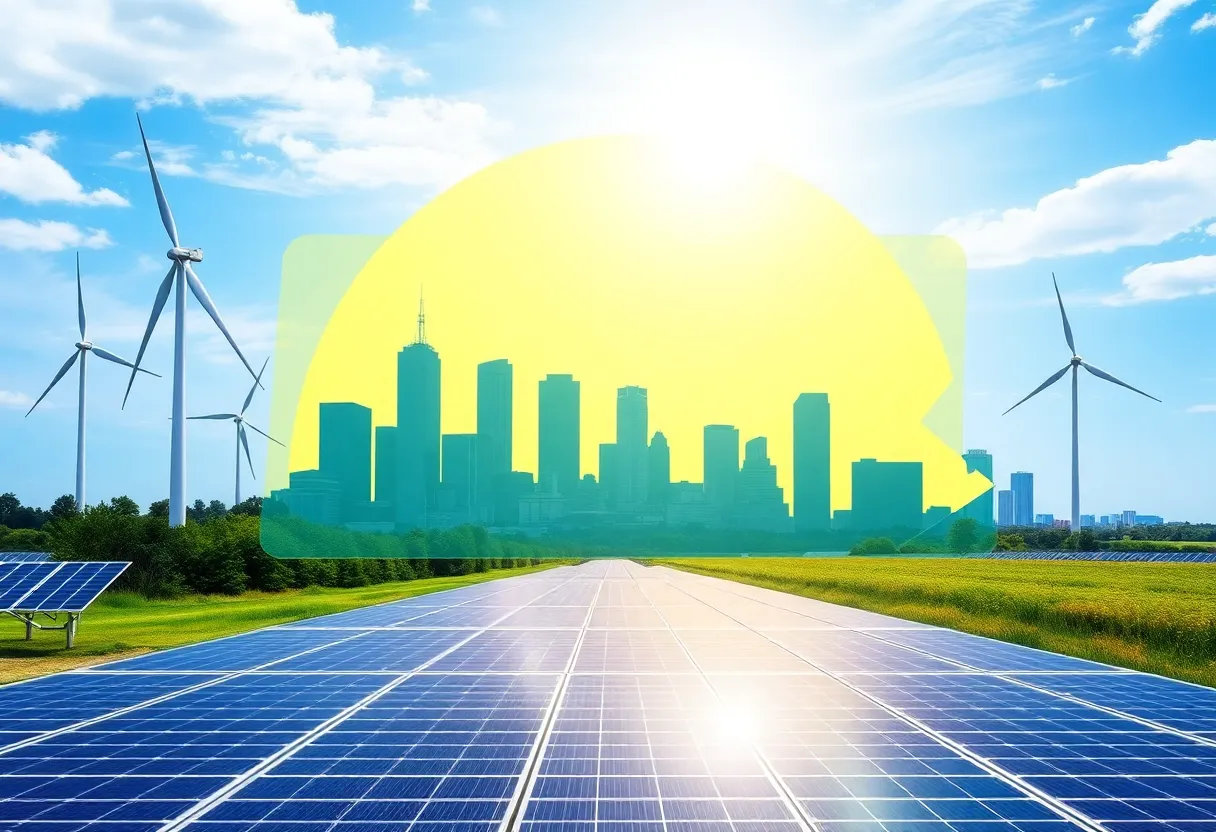News Summary
Pennsylvania’s energy policy is shifting as bipartisan support grows for bills boosting electricity production and regulating clean energy. However, progress is halted pending a court ruling on the Regional Greenhouse Gas Initiative (RGGI), which is pivotal for future energy legislation. Supporters claim RGGI will reduce emissions without raising consumer costs, while opponents warn of potential complications for energy companies. Additionally, a proposed revision to the Economic Development for a Growing Economy (EDGE) tax credit aims to promote clean energy investments. The future of these energy initiatives remains unclear as budget discussions continue.
Pennsylvania is seeing a significant shift in energy policy as a group of bills aimed at boosting electricity production and regulating clean energy have received notable bipartisan support in the state’s divided legislature. However, State Senate Majority Leader Joe Pittman has announced that the consideration of these energy bills will be paused as lawmakers await a ruling from the state’s highest court regarding the Regional Greenhouse Gas Initiative (RGGI).
The RGGI, which was adopted by the prior Democratic administration in 2019 through an executive order, aims to address climate change by establishing a regional carbon dioxide cap-and-trade program. However, the initiative has faced ongoing legal challenges, and the court is anticipated to rule on its future following an argument session held in May. This ruling is pivotal, as Pittman stated that the Senate’s ability to act on energy legislation is contingent upon the decision, indicating it will “dictate the course of energy production” in Pennsylvania.
Supporters of RGGI argue that it will lead to a significant decrease in greenhouse gas emissions with little effect on energy costs for consumers. Contrarily, opponents contend that the initiative may push energy companies to relocate and result in increased costs for consumers.
In addition to the RGGI discussion, the Economic Development for a Growing Economy (EDGE) tax credit package, estimated at $2.6 billion and passed in 2022, has yet to be utilized effectively. Governor Josh Shapiro has proposed modifications to this package, which have garnered bipartisan support, aiming to facilitate its implementation. The original EDGE package was designed to benefit various sectors, including hydrogen production, dairy farming, semiconductor manufacturing, and natural gas petrochemical production.
A revised version of the EDGE credits has already passed the Democratic-controlled House with substantial Republican support. This updated package seeks to lower investment thresholds and job creation requirements. Moreover, there are discussions to supplant the natural gas credit with incentives geared towards clean energy producers, reflecting a shift towards more sustainable energy practices.
Members of the Senate are also exploring alternative rewrites of the EDGE credit, focusing on specific sectors such as semiconductor manufacturing and space-related infrastructure development. Organized labor, particularly the Pennsylvania Building and Construction Trades Association, has expressed support for revisions that encourage investments in clean energy initiatives.
Beyond the EDGE bill, there exists a growing momentum for other energy-related proposals that have received bipartisan support. These include measures to permit communities to lease solar panels and to enact stricter regulations on the solar energy sector. Lawmakers are eager to address these issues, aiming to complete budget discussions by June 30. However, the disruptions caused by the COVID-19 pandemic may affect the timeline for advancing these energy initiatives.
State Representative Liz Fiedler remains optimistic about the possibility of integrating the EDGE and solar initiatives into budget negotiations, highlighting ongoing collaboration with Republican counterparts in the Senate. Additionally, lawmakers have indicated they are interested in advancing GOP priorities, which include withdrawing from RGGI, establishing an independent energy research office, and restricting municipalities from banning specific fuel sources.
Recently, the Pennsylvania Senate has approved legislation to repeal RGGI, claiming that this move would help prevent electricity rate increases while supporting manufacturing job growth. As these discussions unfold, the future of Pennsylvania’s energy landscape remains uncertain, contingent on the impending court ruling and the evolution of bipartisan cooperation within the state legislature.
Deeper Dive: News & Info About This Topic
- Latrobe Bulletin News
- Wikipedia: Regional Greenhouse Gas Initiative
- PA Senate GOP
- Google Search: Pennsylvania energy legislation
- Daily Item
- Encyclopedia Britannica: Clean Energy
- PennLive
- Google News: bipartisan energy bills Pennsylvania

Author: STAFF HERE PHILADELPHIA WRITER
The PHILADELPHIA STAFF WRITER represents the experienced team at HEREPhiladelphia.com, your go-to source for actionable local news and information in Philadelphia, Philadelphia County, and beyond. Specializing in "news you can use," we cover essential topics like product reviews for personal and business needs, local business directories, politics, real estate trends, neighborhood insights, and state news affecting the area—with deep expertise drawn from years of dedicated reporting and strong community input, including local press releases and business updates. We deliver top reporting on high-value events such as Mummers Parade, Philadelphia Flower Show, and Thanksgiving Day Parade. Our coverage extends to key organizations like the Greater Philadelphia Chamber of Commerce and United Way of Greater Philadelphia, plus leading businesses in telecommunications, food services, and healthcare that power the local economy such as Comcast, Aramark, and Children's Hospital of Philadelphia. As part of the broader HERE network, we provide comprehensive, credible insights into Pennsylvania's dynamic landscape.





